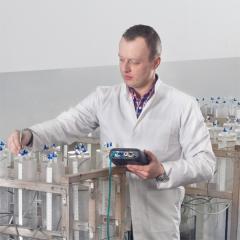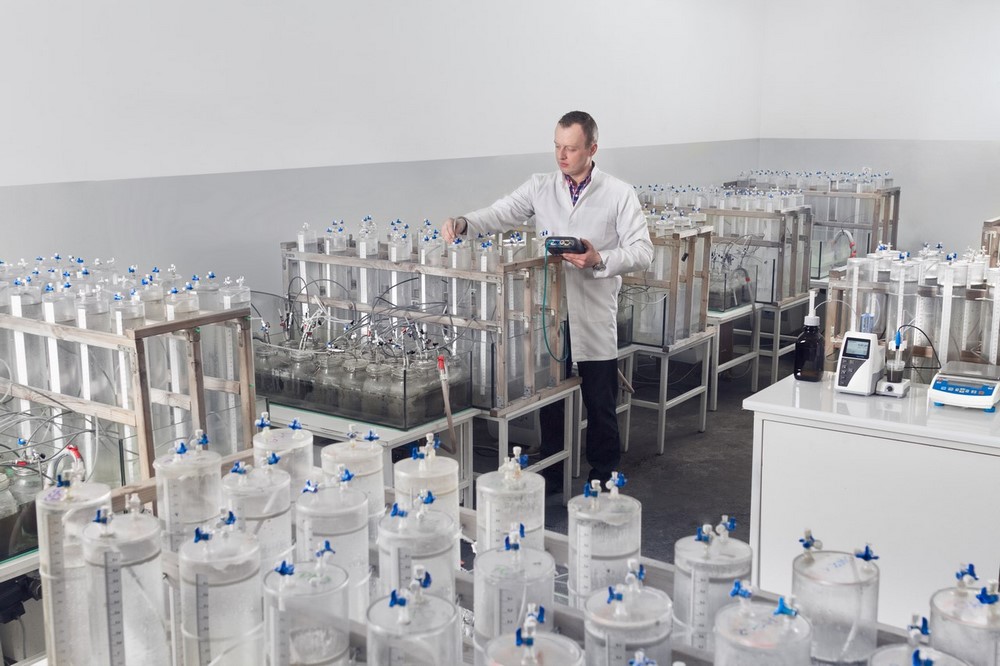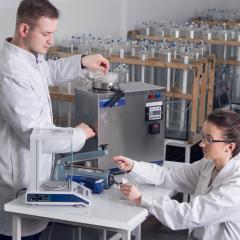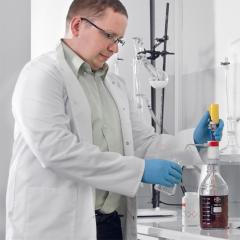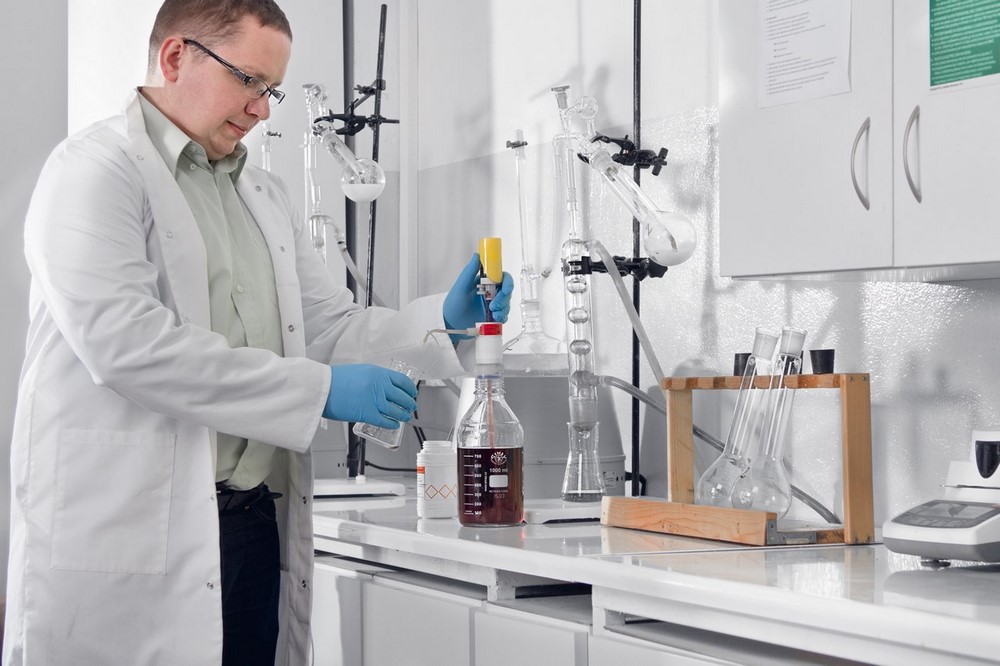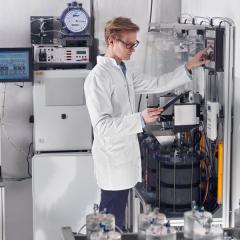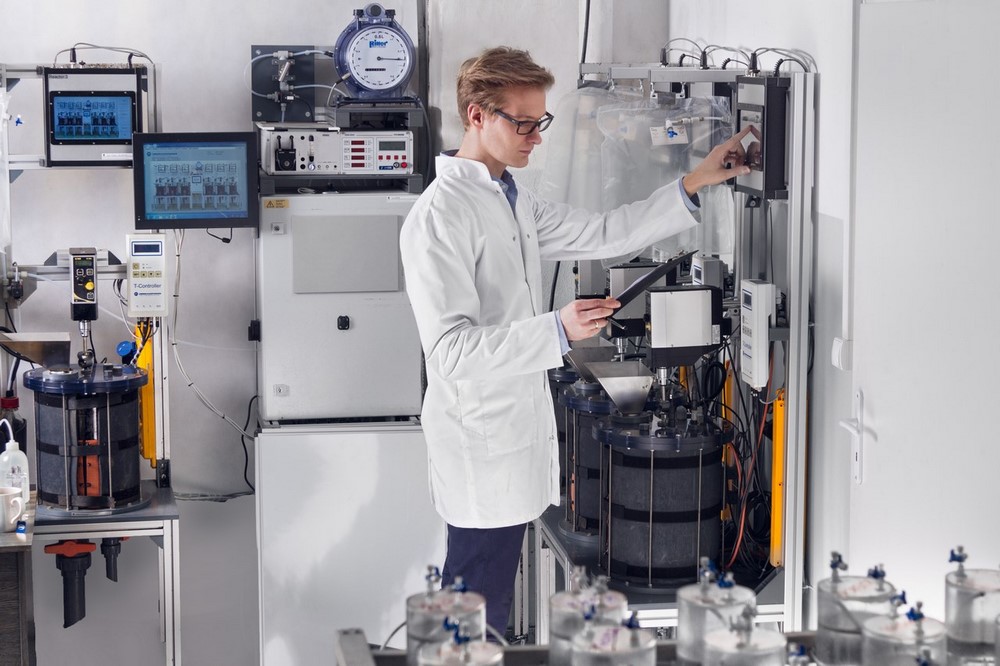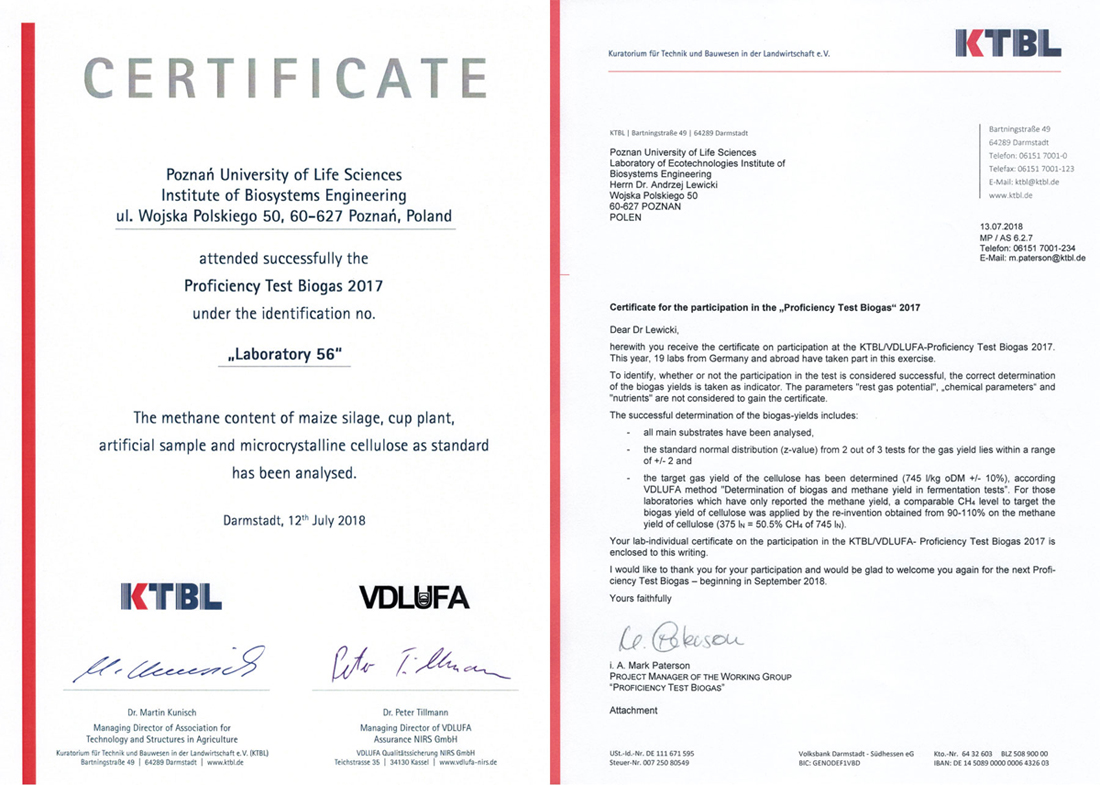SOLID BIOFUELS
The researchers of the Ecotechnology Laboratory are also involved in optimization of the production of biomass-based solid fuels. Such fuels – in the form of pellets or briquettes – can be obtained from the majority biomass feedstocks. In order to achieve it, a proper preparation of the substrate is necessary. Our laboratory is not only able to supply information on the suitability of various materials (including wastes) but is also capable of producing a pilot batchs of such biofuels.











